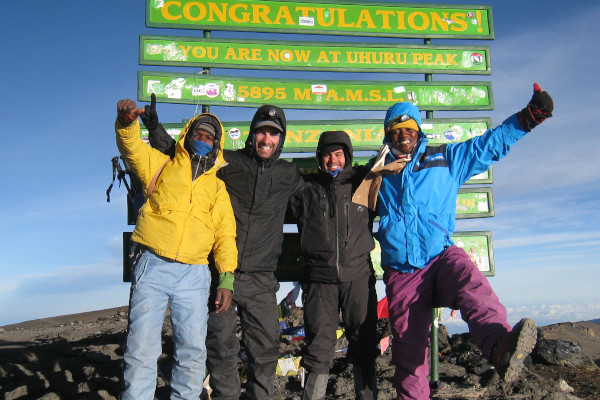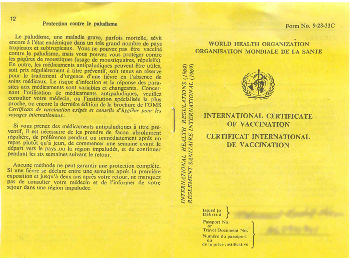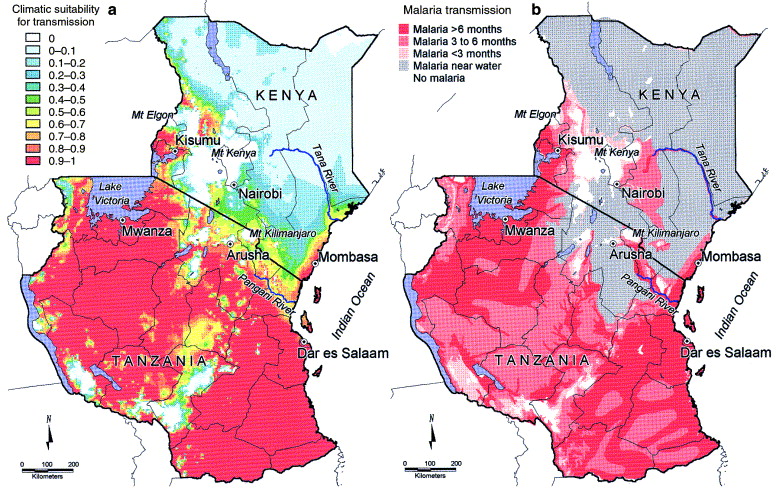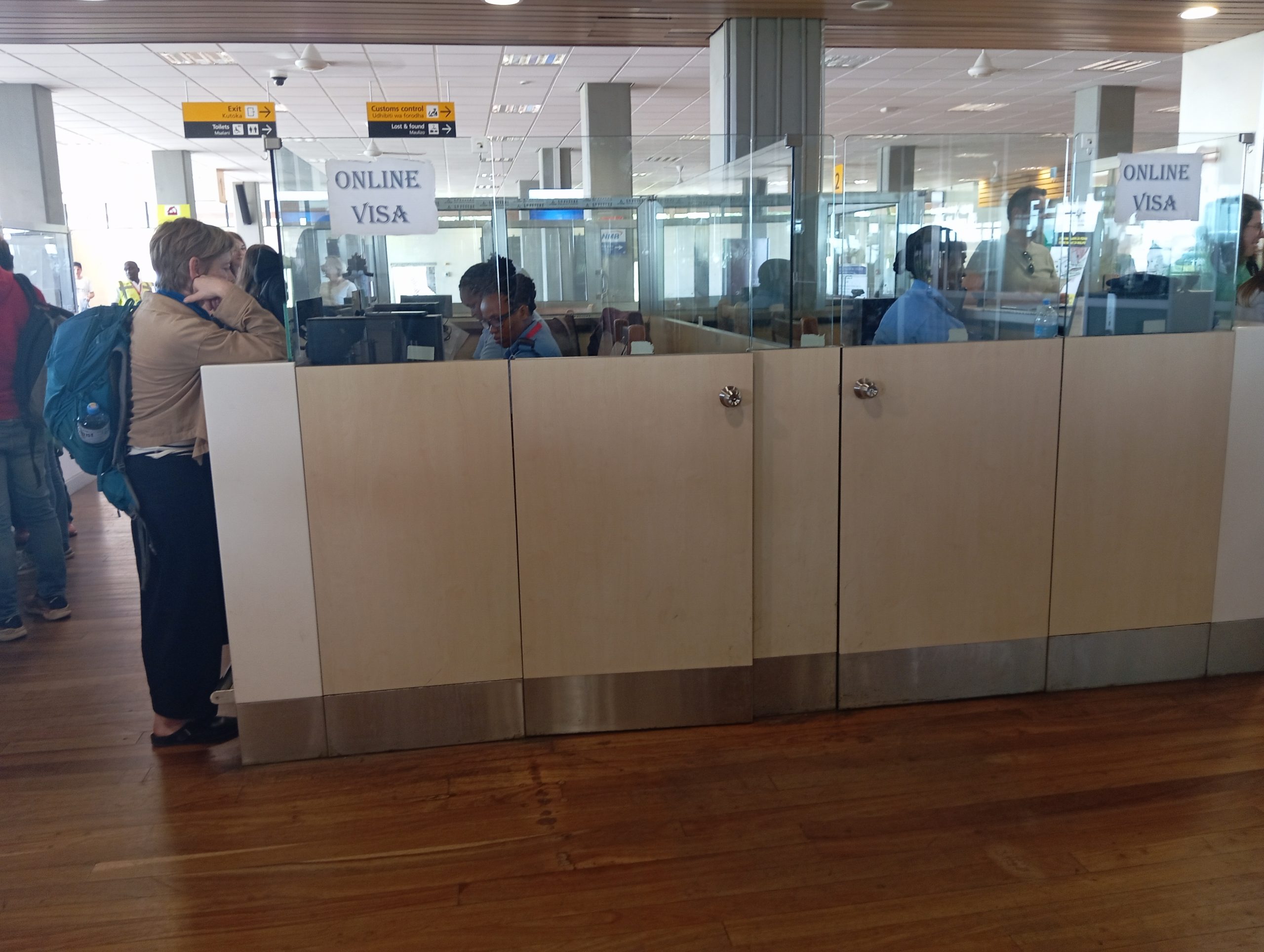A lot of preparation work is required before you depart on your epic Kilimanjaro adventure.
In this short article, I discuss the essential administrative tasks you need to get sorted in terms of Kilimanjaro vaccinations, malaria, yellow fever and travel visas.
My Quick Takeaways:
Planning your Kilimanjaro adventure? Here’s a quick breakdown of essential health and entry requirements:
- Visa Required for Most Travellers: Most visitors to Tanzania need a visa, which can be obtained online or on arrival. Processing times and costs vary, so check in advance.
- Malaria Risk: Kilimanjaro itself is too high for malaria-carrying mosquitoes, but lower-altitude regions, including Moshi and Arusha, have a risk. Anti-malarial medication is recommended if you’re spending time in these areas.
- Yellow Fever Vaccination: Mandatory if you’re arriving from or transiting through a country with a yellow fever risk. Otherwise, it’s not required but may be requested at the border.
- Routine Vaccinations: Hepatitis A, typhoid, tetanus, and diphtheria vaccinations are advised for travellers to Tanzania. Check with your doctor well before your trip.
While Kilimanjaro itself is a high-altitude trek, health precautions for the surrounding region are just as important. Got everything sorted? Let's dive deeper into my Kilimanjaro vaccinations guide.
Vaccinations for Kilimanjaro
Wondering what vaccinations you need for Kilimanjaro?
There are a number of vaccinations for Tanzania that you should get before you travel. I recommend you check with your local GP or travel clinic which vaccinations you require.
Below I have briefly outlined the main vaccinations you should get.
Please note: The information in this section, as with the whole website, is provided as an information resource only, and is not to be used or relied on for any diagnostic or treatment purposes. I recommend you see what the CDC or the UK NHS Fit For Travel websites suggest for travel to Tanzania.

Plan your Kilimanjaro trek
Get a quote from my recommended local Kilimanjaro operator
Yellow Fever
Yellow Fever is a viral disease that is spread by the bite of the female mosquito.
The Yellow Fever vaccination is not essential if you are arriving directly into Tanzania or travelling from any country that doesn’t pose a Yellow Fever transmission risk (this means anyone from the US, UK, Canada, Australia, Europe and many other countries don’t need a vaccination).
However, the vaccination is vital if you plan on arriving through any country that is subject to yellow fever (see countries subject to YF requirements here)
If you simply stop in transit at an airport en-route then you do not require vaccination. If you leave the airport though, even for a short time, you’ll need a Yellow Fever vaccination card.
Hepatitis A & B
It is a good idea to get vaccinated for both Hepatitis A and B.
Hep A is transmitted by direct person-to-person contact or through exposure to contaminated food or water, particularly uncooked foods like salad, shellfish and fruit, or ice in bottled water.
My Pro Tip: You are at the highest risk of Hep B if you are sexually active with the local population, work in the healthcare field or require medical treatment.
Rabies
Exposure to rabies is relatively low. If you plan to spend a lot of time in the country, particularly in rural areas, then it might be a good idea to get a rabies jab. I recommend consulting your doctor to understand the risk in more detail.
Diphtheria/Tetanus/Polio
It is a good idea to get a Diphtheria/Tetanus/Polio booster if you have not had one in the last 10 years.

Plan your Kilimanjaro trek
Get a quote from my recommended local Kilimanjaro operator
Typhoid
Typhoid is spread via contaminated water and food. It is worthwhile getting a typhoid inoculation before coming to Tanzania.
General Medical check-up
In addition to these vaccinations you should have a general medical check-up before you leave for Tanzania. If you are in a fit and healthy condition you should be able to cope with most things that Kilimanjaro throws at you. But rather be safe than sorry.
A medical check-up is especially important for people who suffer from asthma or have any pre-existing medical conditions.

Plan your Kilimanjaro trek
Get a quote from my recommended local Kilimanjaro operator
Malaria and Kilimanjaro
Malaria is an infection caused by the bite of the anopheles mosquito.
Tanzania is a very high-risk malaria country and therefore every precaution should be taken to avoid getting malaria.
The highest risk zones are near the coast in places like Zanzibar, but inland towns like Moshi and Arusha are also relatively high risk Malaria areas (see map below).
The good news is that the anopheles mosquitos is not found at high altitude.
You are unlikely to come into contact with this malaria-carrying mosquito over 2,000m. Therefore as a trekker your greatest risk of infection is just before and after your climb.
The anopheles mosquito is most active at night. Step one is to protect yourself against mosquito bites. Here are five things you can do to reduce the risk of being bitten:
- Wearing mosquito repellent (make sure it contains a high concentration of DEET, for example, Repel make an excellent mosquito repellent)
- Staying indoors between dusk and dawn
- Applying repellent to your skin, clothes and bedding
- Using a mosquito net
- Wearing long trousers and long-sleeve shirts that are light in colour (mosquitos are attracted to dark colours).

Plan your Kilimanjaro trek
Get a quote from my recommended local Kilimanjaro operator
Taking anti-malarial drugs
The trouble with Malaria is that it only takes one bite from an infected mosquito to contract the disease.
The only really sure way of avoiding infection is by taking anti-malarial drugs or prophylaxis.
There are various anti-malarial drugs on the market and we recommend consulting your GP to decide which is best for you.
The type of drug depends on many factors such as length of stay, your age and the degree to which resistance to the drug has occurred in the region you are travelling to.
The three main drugs are Mefloquine (brand names: Lariam, Mephaquin or Mefliam), Doxycycline and Malarone.
Larium is a popular anti-malarial drug, although many people complain of bad side-effects like hallucinations and nightmares. The drug is taken once a week and a full course needs to be taken to ensure effective use.
Travellers can test the drug a few weeks before departing to see if they suffer any side-effects. Some research has suggested that Larium predisposes people to acute mountain sickness (AMS). It also has side effects that mimic those of AMS making diagnosis difficult.
Malarone is a more expensive drug but appears to come with less potential side-effects.
I recommend consulting your doctor before deciding on an appropriate malaria prophylaxis for Kilimanjaro.
Tanzania Tourist Visa Requirements
Most people who visit Tanzania require a visa. As of January 2022, nationals of these countries require a visa:
Afghanistan; Albania; Algeria; Angola; Argentina; Armenia; Australia, Austria; Azerbaijan; Bahrain; Belarus; Belgium; Benin; Bhutan; Bolivia; Bosnia; Brazil; Bulgaria; Burkina Faso; Burma; Burundi; Cambodia; Canada; Cape Verde; Central African Republic; Chad; Chile; China (Peoples Republic of ); Colombia; Comoros; Congo; Congo (Democratic Republic of); Costa Rica; Cote D’Ivoire; Croatia; Cuba; Czech Republic; Denmark; Djibouti; Dominican Republic; Ecuador; Egypt; El-Salvador; Equatorial Guinea; Eritrea; Estonia; Fiji; Finland; France; Gabon; Georgia; Germany; Gibraltar; Greece; Guatemala; Guinea; Guinea-Bissau; Guyana; Haiti; Holland; Holy See; Honduras; Hungary; Iceland; Independent State of Samoa; India; Israel; Italy; Japan; Jordan; Kazakhstan; Korea (North & South); Kuwait; Kurdistan; Laos; Latvia; Liberia; Lithuania; Libya; Luxembourg; Macedonia; Malagasy; Maldives; Mauritania; Mauritius; Mexico; Moldova; Monaco; Mongolia; Mozambique; Myanmar; Nepal; Netherlands: New Zealand; Nigeria; Niger; Norway; Oman; Panama; Papua New Guinea; Paraguay; Peru; Philippines; Poland; Republic of Ireland; Portugal; Qatar; Romania; Russia; Rwanda; Sao Tome & Principe; Saudi Arabia; Senegal; Slovak Republic; Slovenia; South Africa; Spain; Suriname; Sweden; Switzerland; Syria; Taiwan; Tajikistan; Thailand; Togo; Tunisia; Turkey; Turkmenistan; Ukraine; United Arab Emirates; United Kingdom; United States of America; Uruguay; Uzbekistan; Venezuela; Vietnam; Yemen; Yugoslavia (all travelling documents issued by former SFR of Yugoslavia or by present Yugoslav Authorities)
It is recommended you get a Visa before you travel; however, it is possible to be granted a visa on entry in Tanzania. We recommend preparing your visa before departure.
Full details on visa requirements are available on the official Tanzanian embassy website for your country (Google: Tanzania embassy [your country]).
See official Tanzania visa information here.

Plan your Kilimanjaro trek
Get a quote from my recommended local Kilimanjaro operator
My Final Thoughts
Andf there you have it: My quick and easy guide on the various Kilimanjaro vaccinations and visa requirements. Still curious about climbing Kilimanjaro? Check out some of my other helpful guides:




Can you tell me where in Moshi is possible to get tested for malaria and how much does it cost?
Hi Iva, I’m not sure where the best place is to get tested but your hotel or tour operator should be able to direct you to a medical center. The closest might be in Arusha though.
I am planning to give Kilimanjaro a try next july is rabies vaccination really necessary and what is the best course for action with malaria.
Will taking doxycycline hinder my performance climbing? Do a lot of trekkers take doxycycline while climbing.
Hi Shannon, I’m not sure about the answer to your question. Many people do take Malaria drugs and still climb Kilimanjaro, but I recommend consulting your doctor for advice. It is always a good idea to test a malaria drug for a day or two before you depart to see if you experience any side affects. All the best!
I have two questions:
1. I am flying to Niarobi, laying over one day, then flying to Tanzania to climb Kili. Afterwards I will return to Niarobi and spend @ 9 days before leaving. Do I need two separate visas or is there one that will cover both countries?
2. I am from the US and the CDC does not recommend Yellow Fever vaccinations for people over 60. My doctor will not prescribe the vaccination. Is there something I need to obtain to show why I do not have the Yellow Fever card?
Hi Judy, I’m not 100% sure on visa requirements, but believe you will need a separate visa for Kenya as well as Tanzania. I know you can get a visa on arrival in Tanzania. In terms of Yellow Fever vaccination I recommend contacting your nearest Tanzanian Consulate to get their advice. All the best!
Hi there,
I am getting vaccinations from the GP 5 days before arriving to Tanzania and climbing Kilimanjaro. I have 2 questions:
1. Will the vaccination be effective already?
2. Is there any side effects on my body condition to climb Kilimanjaro. (ie. do I have less chances of making it to the top if I get vaccinated just before the climb)
Thanks for your answers!
H.
Hi Henry, Unfortunately I don’t know the answers to your questions. I suspect you doctor will be best placed to answer them. Cheers!
If flying into Kilimanjaro via Kenya will I need a Kenyan visa as well as one for Tanzania even though just in transit
If transferring through Kenya, then no. Hope this helps.
Hi There,
I’m climbing Kili and then spending 5 days on Pemba Island. I assume I need maleria tablets for the few days before I climb and then after the climb but not whilst at altitude. What do you recommend I do? Should I take tablets for the few days before, stop on the mountain and then start again before I reach the rainforest region?
I’d appreciate any help!
Thanks,
Rosie
Hi Rosie, most courses of malaria medication require constant use throughout the period that you are exposed, even if there is a period where you are not at risk. I would consult your GP to get proper medical advice though. All the best!